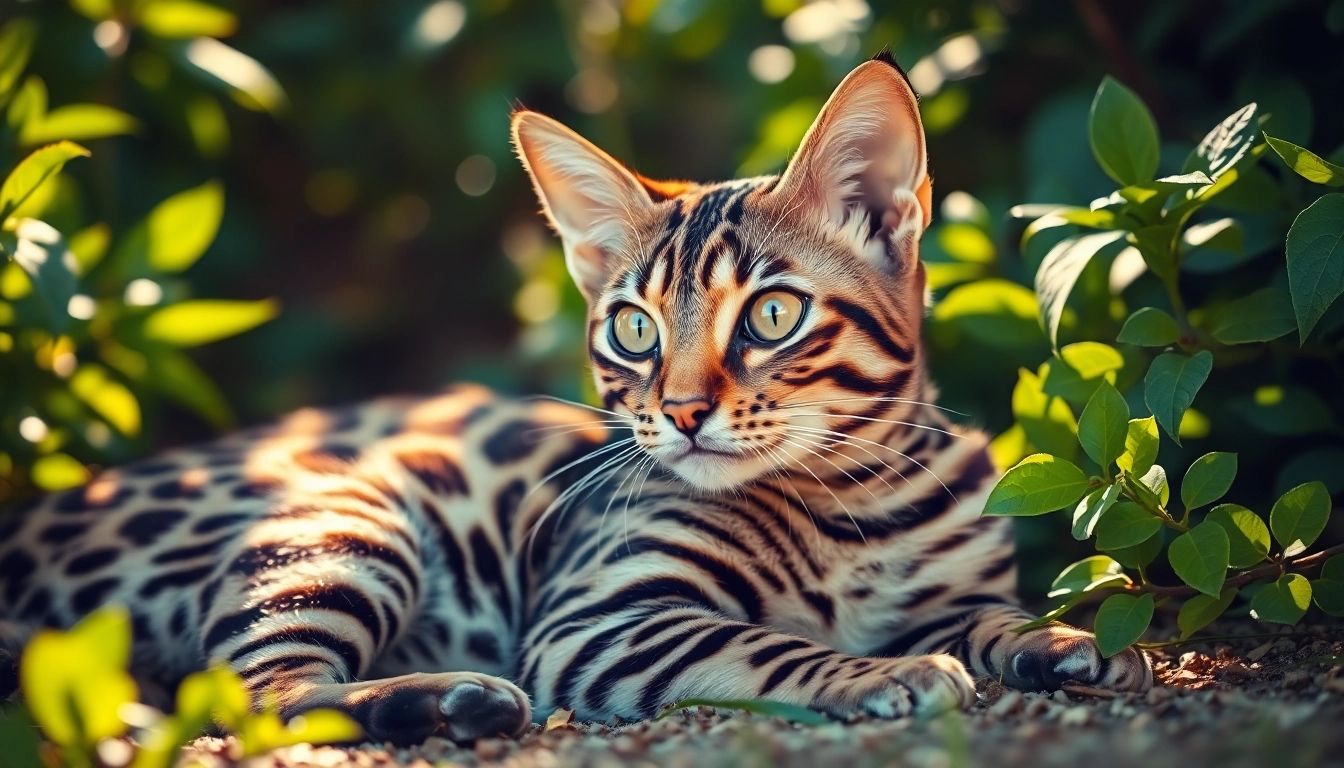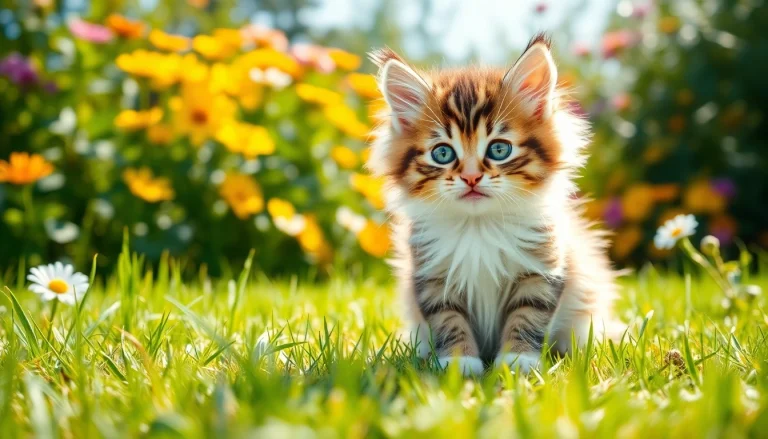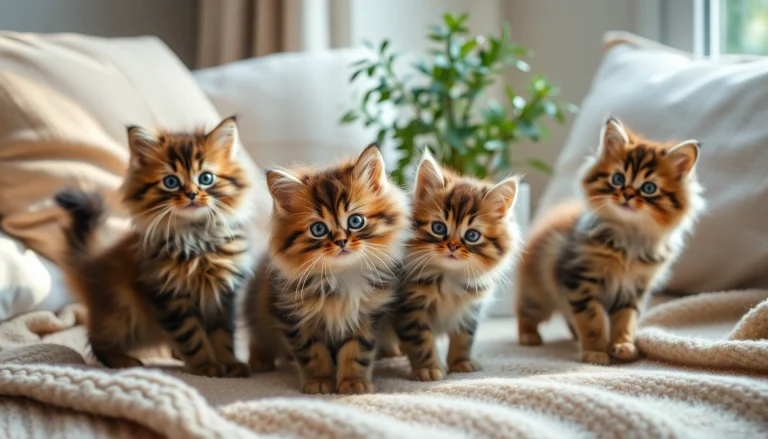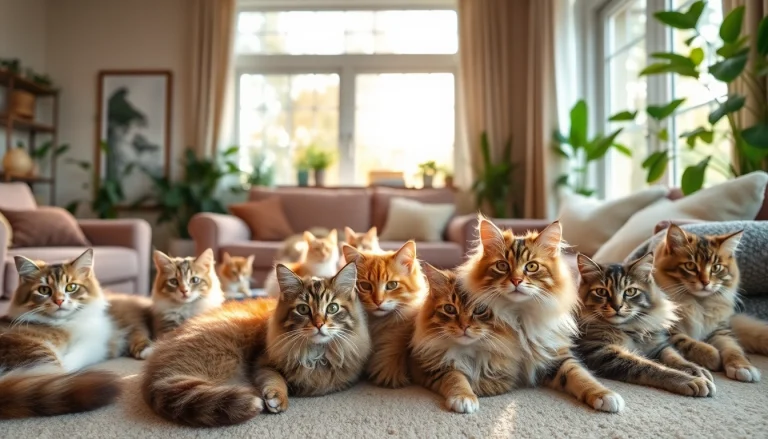Understanding the Bengal Breed
1. Origins and History of Bengal Cats
The Bengal cat is a striking and unique breed that has captured the hearts of cat lovers worldwide. The breed’s origins can be traced back to the 1960s when a hybridization project began in the United States. Breeders sought to create a domestic cat that resembled the exotic leopard cat (Prionailurus bengalensis), known for its stunning coat patterns and wild appearance. This ambitious project involved crossing domestic cats with these small wild cats, resulting in the Bengal breed.
Early Bengal breeders faced skepticism and controversy, particularly regarding the ethics of breeding hybrid cats. However, as the breed gained popularity due to its distinctive look and playful personality, formal breeding programs were established. Today, reputable Bengal breeders, especially those in Orange County, adhere to strict guidelines, ensuring the health and well-being of their cats.
2. Unique Characteristics of Bengals
Bengal cats are renowned for their striking appearance, characterized by their leopard-like spots and rosettes, which are reminiscent of their wild ancestors. These cats come in various colors, including brown, snow, and silver, each pattern offering a unique beauty. One of the most notable features of Bengals is their shimmering coat, which possesses a “glitter” effect—a term used to describe the sparkle that appears in their fur due to unique hair structure.
Beyond their visual appeal, Bengals are known for their strong muscular build, wild-like appearance, and large, expressive eyes. Their personality matches their looks; these cats are known for their energetic, playful, and intelligent nature. Bengals are also known for their love of water, often enjoying a good splash, which is a trait they inherited from their wild ancestors.
3. Common Myths About Bengal Cats
Despite their popularity, several myths about Bengal cats persist, often leading to misunderstandings about this breed. One prevalent myth is that Bengal cats are aggressive or overly wild due to their heritage. In reality, while they are more active and curious than many domestic breeds, their temperament is more closely aligned with that of domestic cats, especially when they have been well-socialized from a young age.
Another misconception is that Bengals require significantly more care than other cats. While they do thrive in environments that stimulate their intelligence and activity levels, they do not necessarily demand an extraordinary amount of care compared to other breeds. Regular playtime, mental stimulation, and enrichment activities will keep a Bengal happy and healthy.
Why Choose Bengal Cats?
1. Temperament and Personality Traits
Bengal cats possess a unique blend of traits that make them exceptional companions. They are known for their playful and affectionate nature, often forming strong bonds with their owners. Bengals are highly social creatures and require interaction and engagement to thrive. This makes them an excellent choice for families or individuals who can dedicate time to their pets.
Bengals are intelligent and curious, displaying traits reminiscent of dogs. They can be trained to perform tricks, respond to their names, and even walk on a leash. Their highly active nature means they enjoy climbing and exploring, making multi-level cat trees an excellent addition to their environment.
2. Health Benefits and Considerations
When selecting a Bengal cat as a pet, it is essential to be aware of specific health considerations associated with the breed. Bengals, like all breeds, can be prone to particular health issues, including Hypertrophic Cardiomyopathy (HCM), a condition affecting the heart muscle. This makes it vital to choose a reputable breeder who performs the necessary health screenings on their breeding stock.
One of the health advantages of owning a Bengal is their high energy level, which encourages their owners to engage in active play and regular exercise. This can lead to a healthier lifestyle for both the cat and the owner. Furthermore, adopting a Bengal cat can also impart emotional benefits, such as reduced stress and increased companionship.
3. Bengal Breeders Orange County: What to Expect
If you’re looking to adopt or buy a Bengal cat in Southern California, specifically in Orange County, it’s vital to understand what to expect from reputable Bengal breeders Orange County. These breeders are often dedicated to maintaining the quality and integrity of the breed, adhering to ethical breeding practices.
Most breeders will be TICA (The International Cat Association) registered and will provide documentation of the kitten’s lineage and health background. Expect to see clean, well-maintained facilities where the cats are raised in a nurturing environment. Good breeders will be open to questions about their breeding practices and the health screenings of their cats.
How to Find Reputable Bengal Breeders
1. Researching Breeder Credentials
When searching for a reputable Bengal breeder, conducting thorough research is crucial. Look for breeders who are recognized by well-known cat registries, such as TICA or CFA (Cat Fanciers’ Association). These organizations offer various resources to help potential cat owners find qualified breeders in their area.
Additionally, consider searching for online reviews or testimonials from previous customers. Social media platforms and pet forums can also provide insights into breeders’ reputations. It’s advisable to make a list of potential breeders and check their credentials systematically.
2. Visiting Breeders and Observing Conditions
Nothing beats visiting a breeder in person. A visit allows potential owners to observe the conditions in which the cats are raised. The cattery should be clean and well-organized, reflecting the care and commitment of the breeder. Take note of the health and happiness of the cats, and watch how the breeder interacts with them—this can often indicate their overall temperament.
During the visit, look for socialization among the kittens. Healthy kittens will be playful and curious, while overly timid or aggressive behavior might be a red flag. It’s beneficial to meet both the mother and father cats if possible to gauge the attitudes of the potential kitten.
3. Questions to Ask Potential Breeders
When you visit a Bengal breeder, having a list of questions can help you gain a deeper understanding of their practices and the kittens’ well-being. Here are some essential questions to consider:
- What health screenings do you perform on your breeding cats?
- Can you provide documentation of lineage and health history?
- What is the socialization process like for the kittens?
- Do you offer a health guarantee for your kittens?
- What are your policies regarding returns or adoptions?
Asking these questions not only provides valuable information but also demonstrates your commitment to finding a healthy and happy kitten.
Choosing the Right Bengal Kitten
1. Analyzing Kittens’ Health and Behavior
Once you’ve narrowed down your options and found a reputable breeder, it’s time to choose the right Bengal kitten for your family. Start by analyzing the kitten’s health. A healthy kitten should have clear eyes, a shiny coat, and an engaged demeanor. Look for signs of health issues, such as runny noses or lethargy, as these may indicate underlying problems.
Observe the kitten’s behavior during your visit. A well-socialized Bengal should be affectionate, playful, and confident. It’s essential to consider the kitten’s energy levels and personality, as these traits will impact your interaction with your new pet.
2. Understanding Different Coat Patterns and Colors
Bengal cats come in various coat patterns and colors, each with its unique visual appeal. Common coat patterns include spotted and marbled, with a range of colors like brown, snow (white), and silver. Understanding these variations can help you select a kitten that resonates with your preferences.
While the appearance is important, it’s worth noting that coat patterns do not influence the kitten’s personality or health. Select based on your aesthetic preferences but prioritize the kitten’s overall health and temperament.
3. Making Informed Decisions Based on Your Lifestyle
Different Bengals may have varying exercise needs and temperaments, so it’s critical to select a kitten that aligns with your lifestyle. For instance, an active family may prefer a highly energetic kitten that enjoys active play, while someone living alone may look for a more relaxed companion.
Consider factors such as your living situation, work schedule, and family dynamics when making your choice. No matter which kitten you select, ensure that you are ready to provide the love, attention, and commitment that Bengal cats require.
Understanding the Costs of Owning a Bengal
1. Initial Purchase Costs Explained
When purchasing a Bengal kitten, prospective owners should be prepared for a significant initial investment. Depending on the breeder and the kitten’s pedigree, purchase costs typically range from $1,000 to $5,000. This price can be higher for kittens with champion bloodlines or unique patterns.
Potential owners should also account for additional costs that might arise during the initial acquisition phase, such as vaccinations, spaying/neutering, and initial supplies like litter boxes, scratching posts, and food.
2. Ongoing Care Expenses for Bengals
Beyond initial costs, it’s essential to consider the ongoing expenses associated with owning a Bengal cat. Food represents one of the most significant recurring costs, as Bengals require high-protein diets that can range from $30 to $100 monthly, depending on the quality and type of food you choose.
Routine healthcare expenses also add up. Regular veterinary check-ups, vaccinations, and dental care should be factored into your budget. Additionally, consider the costs of pet insurance, grooming, and enrichment activities to keep your Bengal happy and healthy.
3. Budgeting for Veterinary Care and Supplies
Creating a budget for your Bengal’s veterinary care is vital for responsible pet ownership. Health expenses can fluctuate based on the cat’s needs; therefore, a rough estimate might include annual check-ups costing between $100 and $300, depending on required vaccinations and procedures.
It’s also prudent to set aside a small emergency fund for unexpected health issues, as Bengals can be prone to certain genetic conditions. By budgeting wisely for both regular and unexpected expenses, you can ensure a healthy and happy life for your new feline friend.








